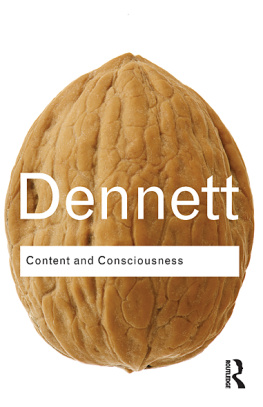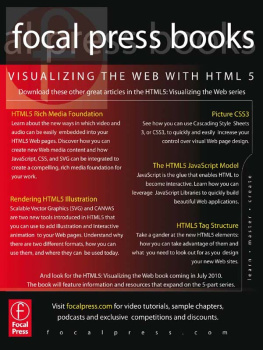First published in 1986 by
Kegan Paul International
This edition first published in 2011 by
Routledge
2 Park Square, Milton Park, Abingdon, Oxon, OX14 4RN
Simultaneously published in the USA and Canada
by Routledge
711 Third Avenue, New York, NY 10017
Routledge is an imprint of the Taylor & Francis Group, an informa business
Mohamed Ibrahim Kamel, 1986
All rights reserved. No part of this book may be reprinted or reproduced or utilised in any form or by any electronic, mechanical, or other means, now known or hereafter invented, including photocopying and recording, or in any information storage or retrieval system, without permission in writing from the publishers.
British Library Cataloguing in Publication Data
A catalogue record for this book is available from the British Library
ISBN 10: 0710301502 (hbk)
ISBN 13: 9780-710301505 (hbk)
Publishers Note
The publisher has gone to great lengths to ensure the quality of this reprint but points out that some imperfections in the original copies may be apparent. The publisher has made every effort to contact original copyright holders and would welcome correspondence from those they have been unable to trace.
In the early forties, I was a student at the Faculty of Law, King Fuad I University (now Cairo University). Egypt was then under British occupation. Along with a group of young people, I embraced the principles of the National Party established by Mustapha Kamel Pasha, who sought an end to the British occupation of Egypt, and to gain independence. This party had been revitalized recently by a group of young men headed by Fathy Radwan, Dr Nour-el-Din Taraf and Dr Zohair Garanna. World War II had then reached its peak and spread to North Africa. Rommels Afrika Korps swept over the Western Desert, advancing towards Egypt in a succession of quick victories over the Allies. It was finally halted by General Montgomery at the battle of El Alamein, 120 kilometres from Alexandria.
The German invasion, whose target was the occupation of Egypt and control of the Suez Canal, provoked mixed feelings among Egyptians. Some feared that the German Nazi regime would supplant Britain in Egypt. Others were strongly in favour of it, in the hope that Egypt would be freed from British occupation and regain its independence. Several demonstrations were staged, with cries of Forward, Rommel!
In view of the agitated situation and the critical position of Britain and the Allies, British tanks surrounded the Royal Palace of Abdin on the night of 4 February 1942. King Farouk, who sympathized with the Germans, was compelled to dismiss Hussein Sirry Pasha and appoint to the post of Premier the Chairman of the Wafd Party, Mustapha El Nahas Pasha. This was designed to secure internal security in Egypt.
This British move aroused violent feelings, constituting as it did a gross affront to the King as symbol of the State. The events of 4 February were looked upon as a black-spot in the history of the Wafd and acted as a catalyst in intensifying the struggle to expel the British. Since Egypt was under Martial Law, clandestine nationalistic organizations began to proliferate among students and army officers.
In 1943, I, together with a group of my young relatives and some university students, set up a secret organization. This was designed to carry out operations against the British forces (whose soldiers roamed the streets of Cairo and several other Egyptian towns). The operations were modelled on the French Resistance Movement following the German occupation.1
The organization we established consisted of twenty-three members and a four-man directing committee, namely Hussein Tewfick, Naguib Fakhry (my cousins), Saad Kamel (a law student) and myself. Some time around the middle of 1945, Hussein Tewfick informed the board of directors that a certain Omar Abu Aly had suggested that he (Hussein) join a secret organization which, it appeared, disposed of superior resources. Hussein told him that he was already a member of another organization. They thereupon agreed to propose to their respective organizations that there should be co-operation and co-ordination between both organizations, since they were pursuing the same goal.
Our directing committee approved the proposal and instructed Hussein Tewfick and myself to meet representatives of the other organization to discuss co-operation and co-ordination between the two organizations. A few days later the meeting took place in one of the coffee shops in Opera Square. Hussein Tewfick and I met Omar Abu Aly, who introduced us to a young man accompanying him; his name was Anwar El Sadat.
Anwar El Sadat was several years older than we were. He was tall and dark, with a big moustache and a husky, deep voice. He wore eccentric clothes. He was wearing a dark grey suit, a light-coloured, red-checked waistcoat, a bright tie and white leather shoes. Our meeting lasted for close on ninety minutes. We discussed the general situation. He gave us to understand, rather vaguely, that he was a member of an organization composed of men in the armed forces. He had been an army captain but had been dismissed because he was suspected of sympathizing with the Germans. He was working at that time in contracting and transportation.
He was responsible for a change in our outlook which had never crossed our minds. Resistance to the British occupation forces was necessary and important, but ineffective. The only way we could attain our objectives effectively was through the elimination of Egyptain leaders co-operating with the British; were we to assassinate a certain number of such leaders in succession, the day would come when the British would be unable to find a single Egyptian to co-operate with them in ruling the country.
We went back to our directing committee and submitted what had transpired at the meeting. After discussion, we decided to carry out joint operations with the other organization. We likewise agreed that our activities would take in Egyptian public figures co-operating with the British.
Hussein Tewfick and I met Anwar El Sadat again in one of the popular coffee shops in El Ataba El Khadra Square called Matathya. We informed him of our agreement to co-operate with him and his organization. He proposed the assassination of the leader of the Wafd Party, Mustapha El Nahas Pasha, for his disgraceful role in the events of 4 February. He would be killed as his car crossed Kasr el Ainy Street, the main street connecting Garden City, where he lived, and Mounira, the location of the Nady El Saadi (the club of the Wafd party).
We endorsed the proposal. A plan was drawn up assigning the main role to Hussein Tewfick, who had nerves of steel. Saad El Din Kamel and I, from our organization, and Sadat and Omar Abu Aly, from the other organization, would take part in the operation to cover Hussein Tewfick. Sadats role consisted of waiting in a car he would park outside the American University in Cairo (which was near the place chosen for the attack on El Nahas Pasha). Sadat gave us a package containing two Bertha 9mm-calibre pistols, some ammunition and two British-made hand grenades.
The assassination attempt was carried out on the specified date. It failed. Hussein Tewfick was to hurl a bomb at Nahas Pashas car to bring it to a halt as it crossed the road, and then was to shoot him. However, the driver had to speed-up to avoid a tram coming towards the car. The bomb exploded behind the car. The splinters caused some damage to the car but no one in it was hurt. The car sped quickly away. We returned to our homes and were never suspected of the assassination attempt, which was put down to persons unknown.





